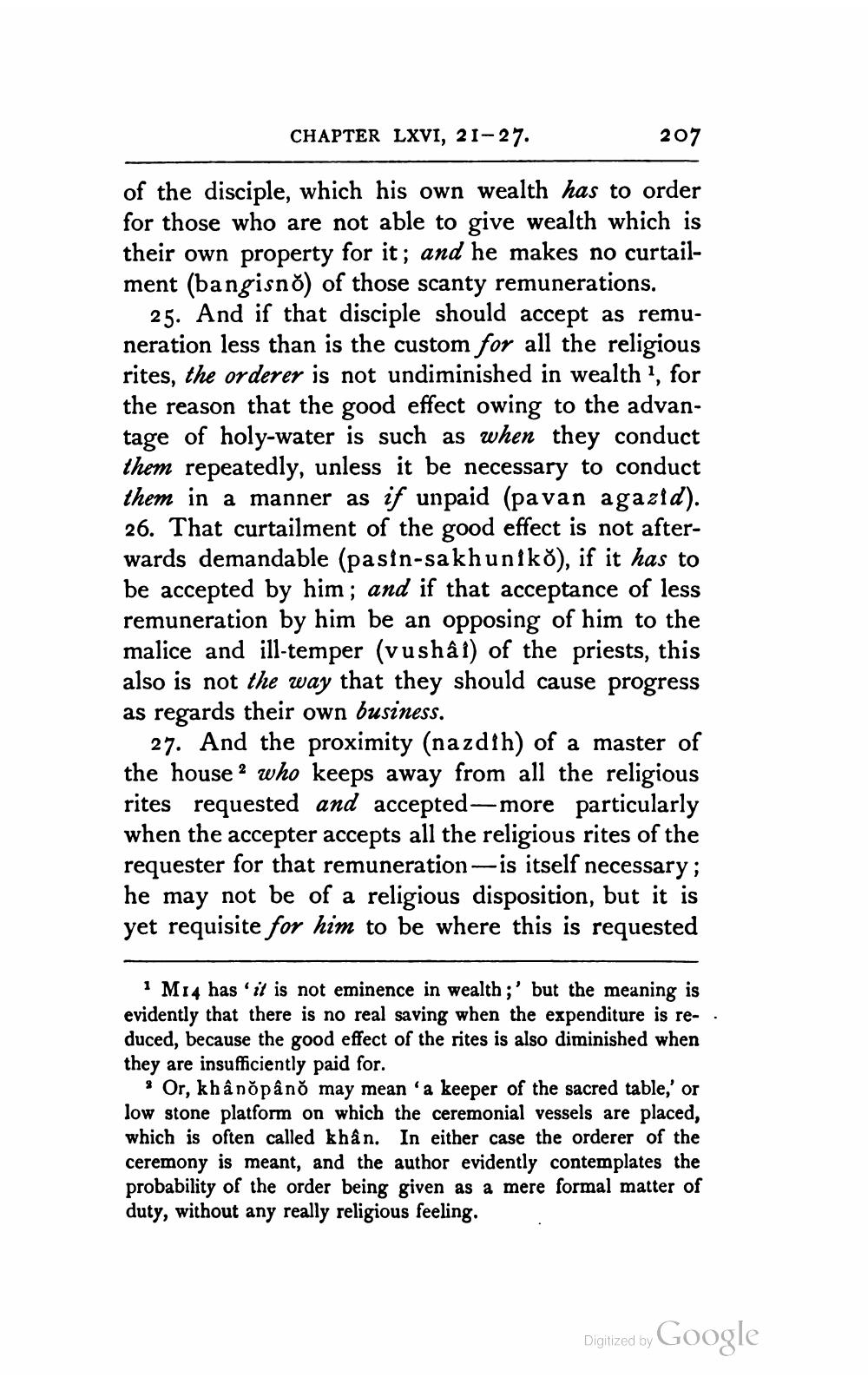________________
CHAPTER LXVI, 21-27.
207
of the disciple, which his own wealth has to order for those who are not able to give wealth which is their own property for it; and he makes no curtailment (bangisno) of those scanty remunerations.
25. And if that disciple should accept as remuneration less than is the custom for all the religious rites, the orderer is not undiminished in wealth ?, for the reason that the good effect owing to the advantage of holy-water is such as when they conduct them repeatedly, unless it be necessary to conduct them in a manner as if unpaid (pavan agazid). 26. That curtailment of the good effect is not afterwards demandable (pasin-sakh uniko), if it has to be accepted by him; and if that acceptance of less remuneration by him be an opposing of him to the malice and ill-temper (vushâl) of the priests, this also is not the way that they should cause progress as regards their own business.
27. And the proximity (nazdih) of a master of the house? who keeps away from all the religious rites requested and accepted-more particularly when the accepter accepts all the religious rites of the requester for that remuneration —is itself necessary; he may not be of a religious disposition, but it is yet requisite for him to be where this is requested
* M14 has it is not eminence in wealth ;' but the meaning is evidently that there is no real saving when the expenditure is reduced, because the good effect of the rites is also diminished when they are insufficiently paid for.
9 Or, khânăpânõ may mean'a keeper of the sacred table,' or low stone platform on which the ceremonial vessels are placed, which is often called khân. In either case the orderer of the ceremony is meant, and the author evidently contemplates the probability of the order being given as a mere formal matter of duty, without any really religious feeling.
Digitized by Google




